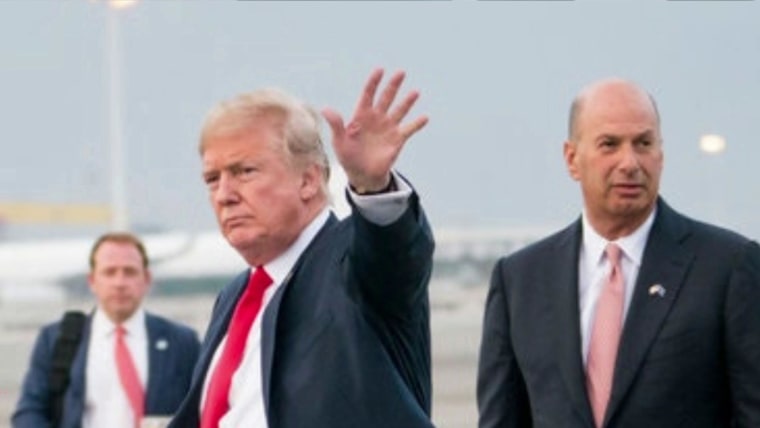In early October, Donald Trump suggested he had a very high opinion of Gordon Sondland, a Republican megadonor the president chose to serve as U.S. Ambassador to the European Union. Trump described him as "a really good man" and a "great American."
Two weeks ago, the president's line took a rather dramatic turn, telling reporters he "hardly knows" Sondland, though he added that the ambassador "said there was no quid pro quo, and he still says that."
This morning, Sondland appeared under oath before the congressional committee exploring impeachment, and effectively flipped, directly implicating the president and top members of Team Trump in the extortion scheme. At that point, the president's line on the ambassador evolved a bit more:
"I don't know him very well. I have not spoken to him much. This is not a man I know well. Seems like a nice guy, though, but I don't know him well. He was with other candidates; he actually supported other candidates, not me. Came in late."
As a rule, when Trump stops to speak with reporters on the White House South Lawn, he isn't carrying anything. Today, however, the president carried some visible handwritten notes, though his comments referring to his relationship with Sondland appeared to be extemporaneous.
Nevertheless, the problem with Trump's latest line is that it's literally unbelievable.
Circling back to our earlier coverage, we know the president had some important phone conversations with the ambassador. We know the president praised Sondland on Twitter. We even know that the Republican donor, who reportedly gave $1 million to the president’s inaugural committee, is one of “a small cadre of ambassadors who enjoy direct and frequent access to Trump.”
As of this morning, we also know that Sondland is a key figure in the impeachment inquiry whose testimony appears to be devastating.
It's a bit too late for a "Gordon who?" defense.
This is, however, part of an amazing pattern for the president, who routinely pretends to forget his associates at the first sign of trouble. Just recently, for example, Trump said he didn’t know Igor Fruman and Lev Parnas after their arrests, despite his previous interactions with them. Of course, they shouldn’t feel too bad about this, since this is the line the president always takes.
As regular readers may recall, after his former personal attorney, Michael Cohen, directly implicated Trump in a felony, the president argued, in reference to the former vice president of the Trump Organization, “Michael Cohen was a PR person who did small legal work, very small legal work.”
Around the same time, in the wake of Jamal Khashoggi’s murder, Trump reportedly told associates he “barely knows“ Mohammed bin Salman.
But that’s just the start of the list. When Paul Manafort was indicted, for example, Trump’s former campaign chairman became some random staffer “who played a very limited role for a very limited amount of time.”
When White House National Security Adviser Michael Flynn was forced to resign in disgrace, Team Trump decided he was “a former Obama administration official” who did some “volunteer” work for the president.
Carter Page was described as someone Trump “does not know.” George Papadopoulos was dismissed as a “coffee boy.” Trump World even tried to downplay its association with Cambridge Analytica, the Trump campaign’s data firm.
No one outside the White House ever takes this rhetoric seriously, but it’s obviously on the first page of Trump’s playbook, unveiled even when everyone knows it’s laughable.
